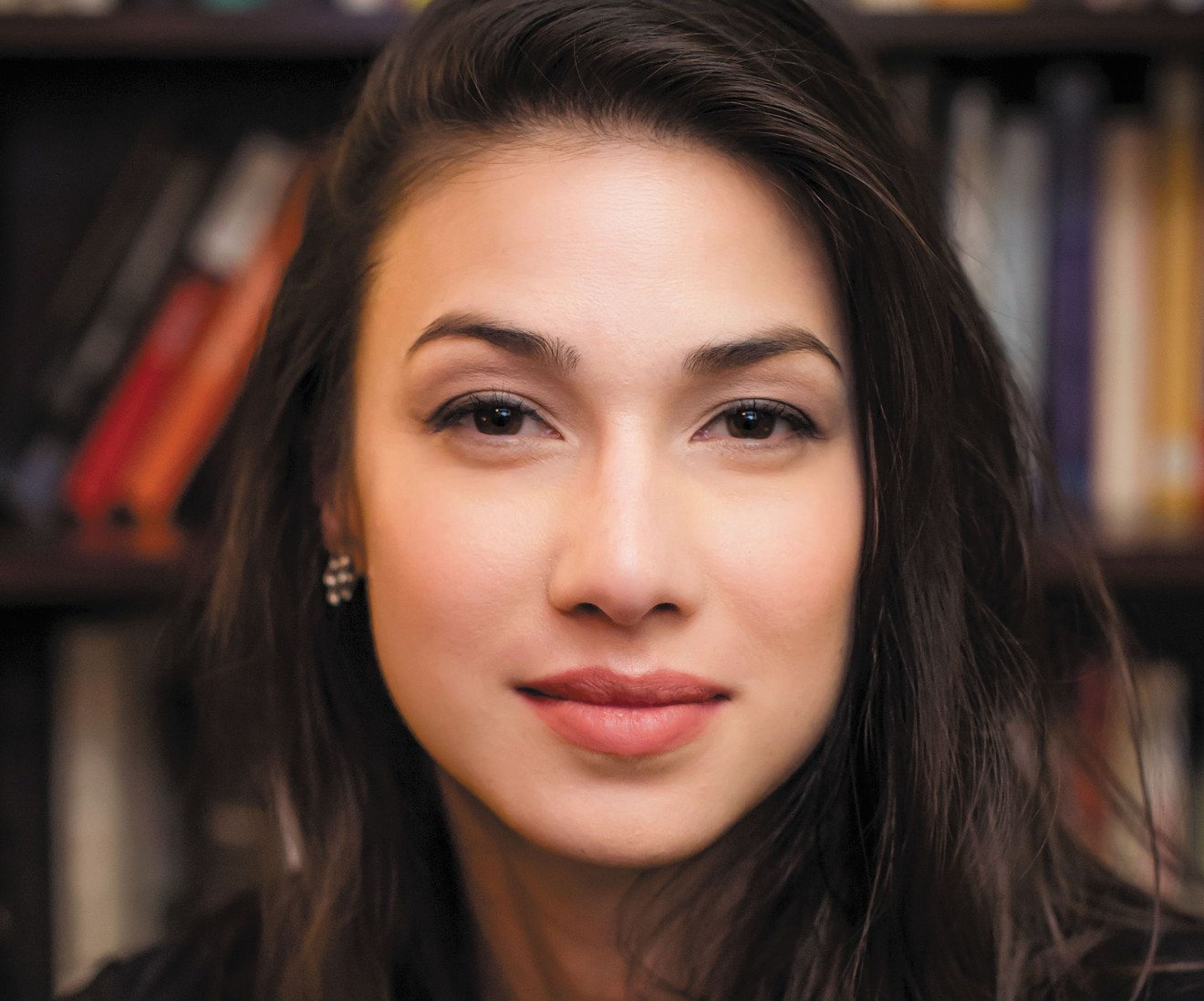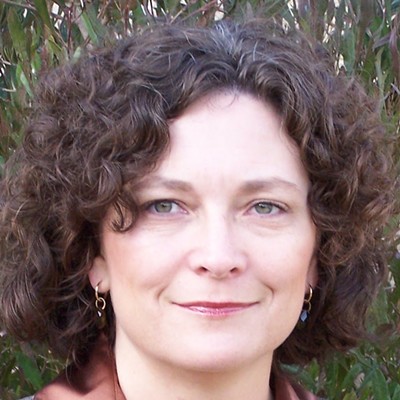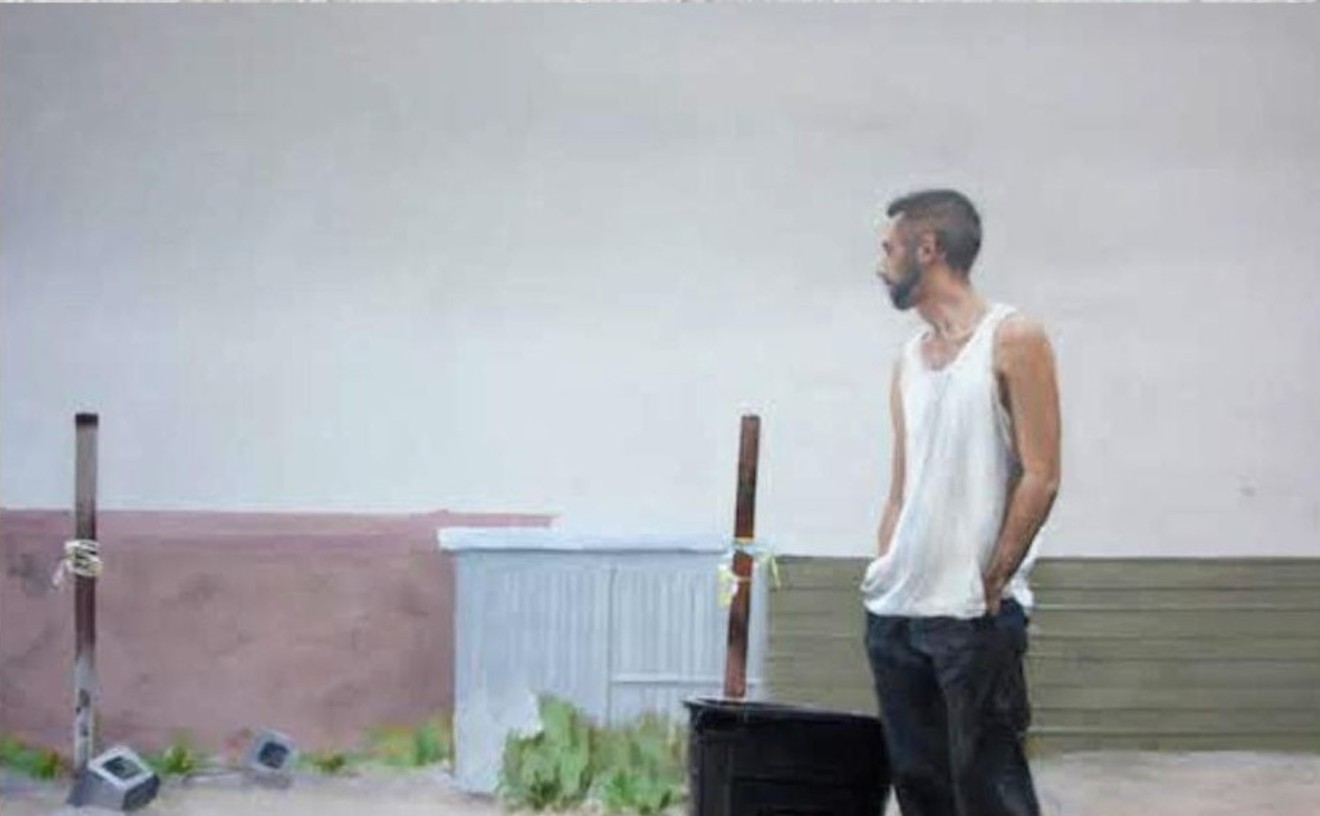Imagine a post-apocalyptic world where memories are bound to shadows, and shadows are disappearing. The Book of M, by Peng Shepherd, explores the lives of four people living in that world, who make very different choices about how to deal with a plague that’s causing people’s shadows to vanish.
Born and raised in Phoenix, Shepherd is the daughter of retired Channel 12 anchor Lin Sue Cooney, and earned her master of fine arts degree in creative writing at New York University. Now 30, she’s been writing since she was a young child. The Book of M, her first novel, will be released on Tuesday, June 5.
Recently, we spoke with Shepherd at Changing Hands Bookstore in Phoenix, where she talked about her writing process, her fascination with shadows, and more.
How did you come to be an author?
I just always wanted to be one. I tried to write my own book when I was 5. My mom took it to work and had it laminated, and I thought it was published. I started a new novel every day as a kid. My mom used to keep them in big binders. They’re all boxed up at her house now.
My mom was really good at reading to my brother and I every day. We only got toys on special occasions, but if we wanted a book we could get it any time. In the beginning, I learned to write from reading.
How did you go about writing The Book of M?
I just sat down and started typing as much as I could. Most of it wasn’t connected. I was just pouring out everything as fast as I could. For about 50 or 100 pages, I was just spewing out the situation of it. After about three months, I figured out what got it moving. It was a married couple, and the wife losing her shadow.
Then I thought of the ending, because I felt if I could get the ending, I would know that I really had something. I had no idea how I would get there, but I just kept writing. It took about nine months to write my first draft, then I spent about six months on revisions. I wrote about five or six hours a day. It’s especially terrifying to write your first book, because you don’t have anyone in your corner.
What made you decide to write about shadows?
I had been thinking I wanted to write about shadows for some time. They have so much symbolism. As a kid, I played games with my own shadow, and I tried to outsmart it. It made me feel a little bit magical, and that feeling always stuck with me.
I learned about something called Zero Shadow Day, which happens every year in India. That was just so fascinating. I also read parts of the Rig Veda [ancient Sanskrit scriptures] while I was doing research for the book.
How did you develop your characters?
It feels like I met them, like they just walked in. A couple came to me first, and two other people showed up later. I tell the story from four perspectives. You just really have to let them do what they would do. Usually, when I sit down to write, I think about what happens next. They would solve problems in ways I wouldn’t have.
Ory (the husband) is a rule follower, who wants to stay in hiding. He’s afraid of the outside and change. He likes everything to be organized and systematized. Max (the wife) is more free-spirited. If something goes wrong, she wants to do something about it. I really worked to punch up the love story. That’s the heart of the story: Are these two going to make it?
Writing the fourth character was challenging. He’s really important to the story, but for the longest time I couldn’t figure out who he was. I ended up rewriting his chapters, which ran about 150 pages, in the span of a few weeks. He’s an amnesiac following a car accident. He’s someone on the outside but he understands the shadowless people. He understands them because of who he isn’t.
Did you have to let go of anything along the way?
I had a pair of crows that talked in human language, but they didn’t move the plot forward. And I had a long, tense scene with a bridge crossing. Something sinister lives there and anyone who crosses it loses their face, and gets trapped with faceless people. I cut it because it was too long.
Why is the post-apocalyptic genre so popular?
People are reading these stories, especially now, because they’re looking to understand the world and think in new ways. Usually a new society gets invented afterwards that’s very different than what existed before. It’s exciting to think outside the box about the ways our society works. It can open doors to thinking about other ways our society could be and gives us hope. In those stories, everything is gone. But people still keep going.
What makes a good writer?
I think it’s the courage to let the story go where it needs to go, instead of where you think it needs to go. You have to write what only you can write. You really just have to write a lot. You just have to do it. It’s a skill, so you have to practice.
I think I was born to write, but if I hadn’t gone to an MFA program, I wouldn’t have taken my writing as seriously. That gave me permission to take it as seriously as I wanted to, and gave me deadlines and peers who were reading my work. I was able to treat writing professionally, instead of it just being a passion.
I have a group of about five writers. We read each other’s drafts, and try to push each other. I still read a lot, especially books I think might be in the same realm. Typically, I read about 100 books a year. I prefer to read a book in one sitting, instead of stopping and going back to it later. I used to just read them, but now I try to peek under the hood and figure out what made it so good.
Peng Shepherd will discuss her debut novel at Changing Hands Bookstore in Phoenix at 7 p.m. on Tuesday, June 5, and at Poisoned Pen Bookstore in Scottsdale at 7 p.m. on Friday, June 8. Get details on the author's website.
[
{
"name": "Air - MediumRectangle - Inline Content - Mobile Display Size",
"component": "18478561",
"insertPoint": "2",
"requiredCountToDisplay": "2"
},{
"name": "Editor Picks",
"component": "16759093",
"insertPoint": "4",
"requiredCountToDisplay": "1"
},{
"name": "Inline Links",
"component": "17980324",
"insertPoint": "8th",
"startingPoint": 8,
"requiredCountToDisplay": "7",
"maxInsertions": 25
},{
"name": "Air - MediumRectangle - Combo - Inline Content",
"component": "16759092",
"insertPoint": "8th",
"startingPoint": 8,
"requiredCountToDisplay": "7",
"maxInsertions": 25
},{
"name": "Inline Links",
"component": "17980324",
"insertPoint": "8th",
"startingPoint": 12,
"requiredCountToDisplay": "11",
"maxInsertions": 24
},{
"name": "Air - Leaderboard Tower - Combo - Inline Content",
"component": "16759094",
"insertPoint": "8th",
"startingPoint": 12,
"requiredCountToDisplay": "11",
"maxInsertions": 24
}
]













